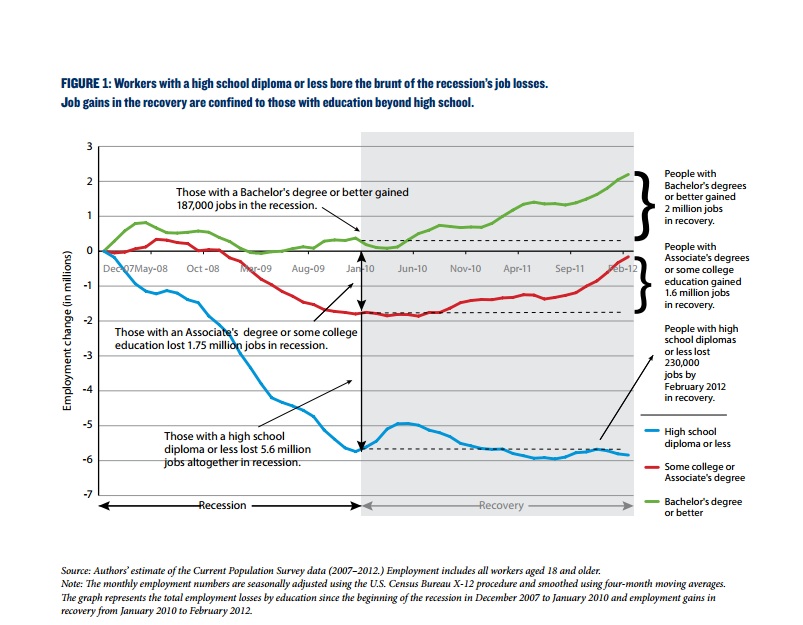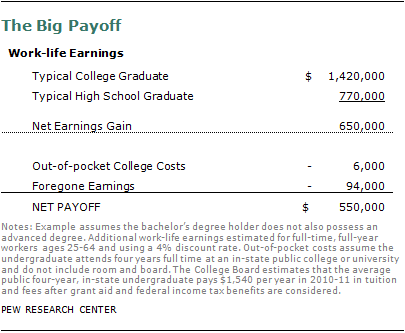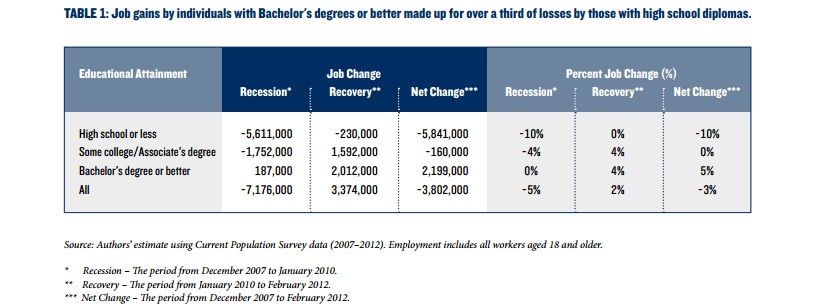How a College Degree is Beneficial for Your Career

It is almost unquestionable that education has a direct correlation to your career success. In fact, consider this: A recent study from Georgetown University’s Center on Education and the Workforce showed that over a three-year period during the recent recession in the United States that nearly four out of every five jobs lost was held by workers with no post-secondary educational experience.
That’s a pretty startling statistic.

And perhaps even more startling is that these jobs are not returning. While the U.S. economy continues to recover, jobs gained during this upswing have not returned to those workers- and isn’t likely to.
“It is a tough job market for college graduates but far worse for those without a college education,” Anthony Carnevale, co-author of the report, wrote in a press release.
Showing You the Money
And it doesn’t get better for professionals who haven’t earned some type of advanced education, whether that is a professional certificate, an associate’s or bachelor’s degree- they are being left behind their peers.
A recent Pew Research Center report showed that the average college grad earns an estimated $650,000 more in a lifetime than the typical high school graduate.

By Degrees
Of course not every career benefits from extended education. For example, if you’re a land surveyor you probably wouldn’t spend the time and money on a Ph.D. in geology. However, in most careers (as the Pew Research Center report suggest below) the further you advance your studies, the greater the return on investment.
- The typical or average high school graduate with no further education earns about $770,000 over a 40-year work life.
- The typical worker with a (two-year) associate degree earns about $1.0 million.
- The typical worker with a bachelor’s degree and no advanced degree earns about $1.4 million.

According to the U.S. Bureau of Labor Statistics project, for decades a gradual shift has been underway that has changed the landscape of the American workforce. Today, more and more jobs are going to a workforce that is scholastically more educated than previous generations and the recent recession most likely accelerated that process to where we find ourselves today.
“At a time when more and more people are debating the value of post-secondary education, this data shows that your chances of being unemployed increase dramatically without a college degree,” said Carnevale.
What have been your experiences in today’s workforce? Please let us know in the comment section below.



Add a comment